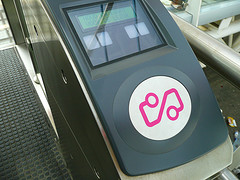 Dutch public transport companies have forced a new payment system onto their users, the ‘OV Chipkaart’ (‘Public transport chip card’), and are now complaining that travellers do not understand how the system works.
Dutch public transport companies have forced a new payment system onto their users, the ‘OV Chipkaart’ (‘Public transport chip card’), and are now complaining that travellers do not understand how the system works.
Rather than buying a ticket, you have to hold a chip on a card to a reader, once for checking in and once for checking out. Not surprisingly, a lot of people forget to check out, and in doing so lose the deposit that was subtracted from their digital wallet when they checked in. Until now most transport companies have refunded these lost deposits, but nu.nl reports that the refunds won’t be given forever.
Bus company Connexxion told the news site: “We look at this on a case by case basis. If you bump your head often enough, you’ll eventually learn not to.” Qbuzz, another bus company, estimates that it will keep giving money back for only a few more weeks.
Metro company RET of Rotterdam reports that people forget to check out about 0.5% of the time. Since the deposit is higher than the average amount of money the transport companies expect to make on a single fare and they do not have to do anything in return, that’s going to be a nice windfall for them.
The previous system (Strippenkaart) had a built in moneymaker like that too, in that you had to buy several tickets at once, which would undoubtedly get lost in one’s sofa to emerge only when the last date you could use the card on had gone by. Although it was possible to buy a ticket for just a single trip, these tended to be a lot more expensive.
The introduction of the OV Chipkaart also seems to have gone hand in hand with price hikes, Dutch News reports:
The government is to assess whether the switch to the new public transport smart card has made using buses and trams more expensive, Trouw [newspaper] reports on Tuesday.
There are have been numerous reports of price increases in recent months but the introduction of the OV Chipkaart had been coupled with a government pledge that travel would not become more expensive.
Uselog describes a host of usability problems with the OV Chipkaart.
(Photo by Franklin Heijnen, some rights reserved)
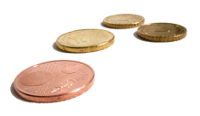 What do you do if you don’t trust the banks? You keep your money under your mattress.
What do you do if you don’t trust the banks? You keep your money under your mattress. 
 A student at the Delft University of Technology has won the audience award of a design competition held every year by Dutch department chain store HEMA.
A student at the Delft University of Technology has won the audience award of a design competition held every year by Dutch department chain store HEMA. Rabobank has been sued by a bailiff in Utrecht, GGN, because the bank tried to have it collect outstanding mortgage debts without a court order.
Rabobank has been sued by a bailiff in Utrecht, GGN, because the bank tried to have it collect outstanding mortgage debts without a court order.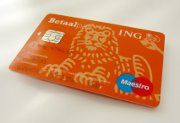 On 1 March 2011 the Dutch started a 9-month process in which bank cards with magnetic strips are replaced by chip-based ones. Paying in stores with a bank withdrawal is the most popular card based payment method. Cash is still good for 66% of all payments in brick and mortar stores, but paying with bank cards makes up almost all the rest of the payments, according the
On 1 March 2011 the Dutch started a 9-month process in which bank cards with magnetic strips are replaced by chip-based ones. Paying in stores with a bank withdrawal is the most popular card based payment method. Cash is still good for 66% of all payments in brick and mortar stores, but paying with bank cards makes up almost all the rest of the payments, according the  The Dutch revenue service (Belastingdienst) has announced that the winner of the Staatsloterij Jackpot will have to pay income tax over these winnings for both 2010 and 2011.
The Dutch revenue service (Belastingdienst) has announced that the winner of the Staatsloterij Jackpot will have to pay income tax over these winnings for both 2010 and 2011. * Several provinces have instated hunting bans for a variety of animals because of the cold weather. Zeeland, Drenthe, Noord Holland and Limburg have ordered a general hunting ban, while others have limited their bans to a selection of animals. The Party for the Animals (PvdD) has called for a nationwide ban,
* Several provinces have instated hunting bans for a variety of animals because of the cold weather. Zeeland, Drenthe, Noord Holland and Limburg have ordered a general hunting ban, while others have limited their bans to a selection of animals. The Party for the Animals (PvdD) has called for a nationwide ban, 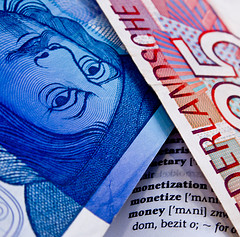 Before the euro was introduced as a pan-European currency in 2002, the Netherlands used the venerable guilder.
Before the euro was introduced as a pan-European currency in 2002, the Netherlands used the venerable guilder.  Dutch public transport companies have forced a new payment system onto their users, the ‘OV Chipkaart’ (‘Public transport chip card’), and are now complaining that travellers do not understand how the system works.
Dutch public transport companies have forced a new payment system onto their users, the ‘OV Chipkaart’ (‘Public transport chip card’), and are now complaining that travellers do not understand how the system works. 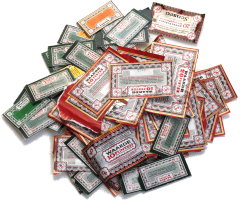 Z24
Z24